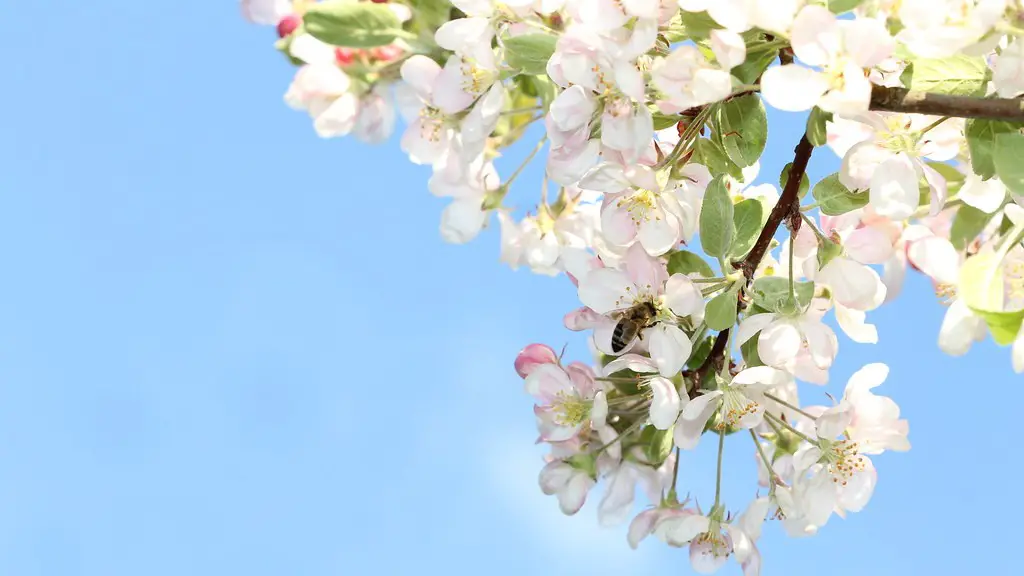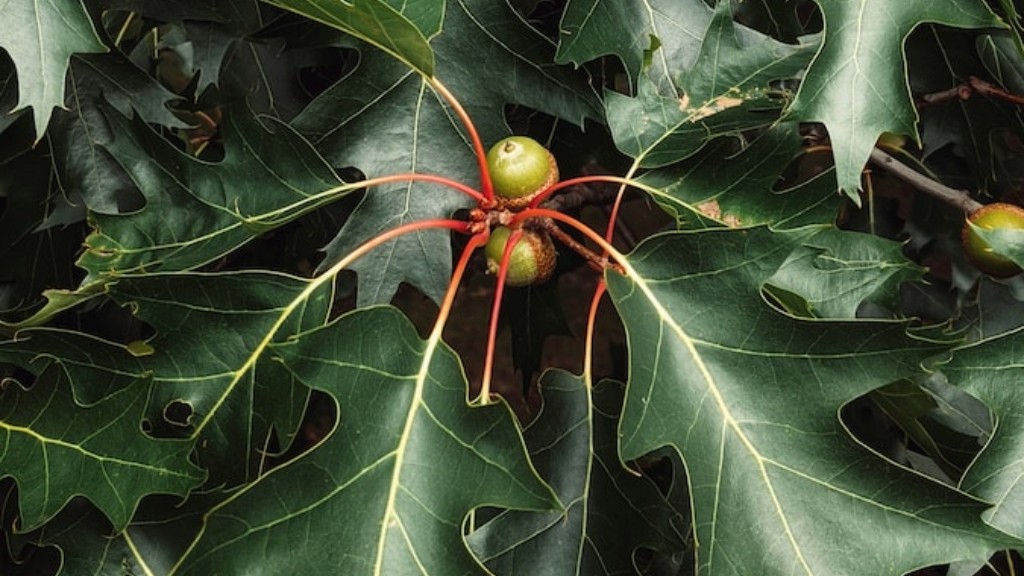The age-old question of whether or not one apple tree can bear fruit still remains an open-ended query. Depending upon the conditions of the location one wishes to plant their tree, the harvest and yield of fruit can vary significantly. Here we will explore the conditions and the requirements needed to ensure a successful harvest.
As with many fruit trees, a single apple tree will only produce fruit if it is properly pollinated. This can be done through both natural and artificial means. Natural pollination is done through the help of birds, insects, and other pollinating animals that move pollen from flower to flower and plant to plant. Artificial pollination requires human intervention and involves transferring pollen with a brush or other type of tool.
Another requirement for apple trees to bear fruit is adequate sunlight and water. The tree should receive a full six to eight hours of sunlight each day, depending upon the specific variety of apple tree. Additionally, the tree should be well watered during droughts or in arid climates.
Lastly, the tree should receive adequate care and maintenance. This includes pruning the tree to promote growth and proper air flow, as well as fertilizing the tree every year. Pruning should also be done to remove any dead or diseased branches, as well as to increase space for the mature fruit to grow and expand. A combination of these practices should ensure healthy and productive fruits.
Soil Conditions
Soil is also a major factor in determining if one apple tree will bear fruit or not. Ideally, the soil should be nutrient-rich, well-draining and neutral to slightly acidic in pH levels. If the soil is too alkaline, then it can limit the tree’s ability to absorb essential minerals, resulting in a less healthy tree, and most likely a decreased harvest.
The soil can also be amended with organic matter, such as compost and mulch, to help improve the fertility of the soil. This improved fertility also helps to retain moisture in the soil, which can be important in drier climates. Additionally, organic matter can help to increase the levels of beneficial microbes and other microorganisms that can help to promote healthy growth.
Organic matter also helps to maintain soil structure by increasing the porosity of the soil, helping to retain the necessary air and moisture needed for growth. In some cases, soil amendments can even help to buffer any levels of toxic chemicals or radiation from the soil.
Lastly, it is important to note that soil should never be over-fertilized. Over-fertilization can damage roots and leaves, and result in an unhealthy tree, and ultimately, a decreased harvest.
Climate Considerations
When it comes to the climate, not all Apple trees are created equal. Different varieties of apples will require varying levels of temperatures, humidity, and sunlight. For example, colder climates can generally support more varieties of apple trees, while trees in hotter climates may require more particular temperatures and sunlight as to avoid scorching or wilting.
Some trees may even require winter chilling of a certain number of hours in order to set flowers and fruit in the spring. It is important to research the specific variety of apple tree one wishes to plant in order to figure out what climatic conditions it requires for best results.
Apple trees have been cultivated for centuries, with over 7,500 recognized varieties in the world. While many of these varieties do not require special climates and will do well in most conditions, there will still be a certain degree of special care and attention that must be given if one wishes to ensure a successful harvest of fruit.
In conclusion, although one apple tree may bear fruit, there are a variety of factors that must be taken into account in order to ensure a healthy, successful harvest. Proper pollination and care, as well as the right soil and climate conditions, are essential components to consider before planting and maintaining an apple tree. With these factors in place, a successful harvest of apples is all but guaranteed.


